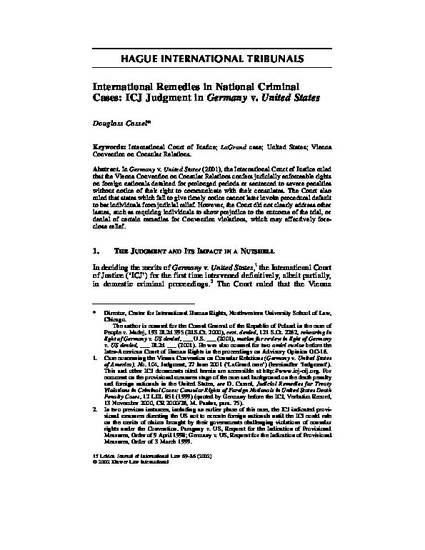
Article
International Remedies in National Criminal Cases: ICJ Judgment in Germany v. United States
Journal Articles
Document Type
Article
Publication Date
1-1-2002
Disciplines
Publication Information
15 Leiden J. Int'l L. 69 (2002)
Abstract
In Germany v. United States (2001), the International Court of Justice ruled that the Vienna Convention on Consular Relations confers judicially enforceable rights on foreign nationals detained for prolonged periods or sentenced to severe penalties without notice of their right to communicate with their consulates. The Court also ruled that states which fail to give timely notice cannot later invoke procedural default to bar individuals from judicial relief. However, the Court did not clearly address other issues, such as requiring individuals to show prejudice to the outcome of the trial, or denial of certain remedies for Convention violations, which may effectively foreclose relief.
Citation Information
Douglass Cassel. "International Remedies in National Criminal Cases: ICJ Judgment in Germany v. United States" (2002) Available at: http://works.bepress.com/douglass_cassell/15/

Reprinted with permission of Leiden Journal of International Law.